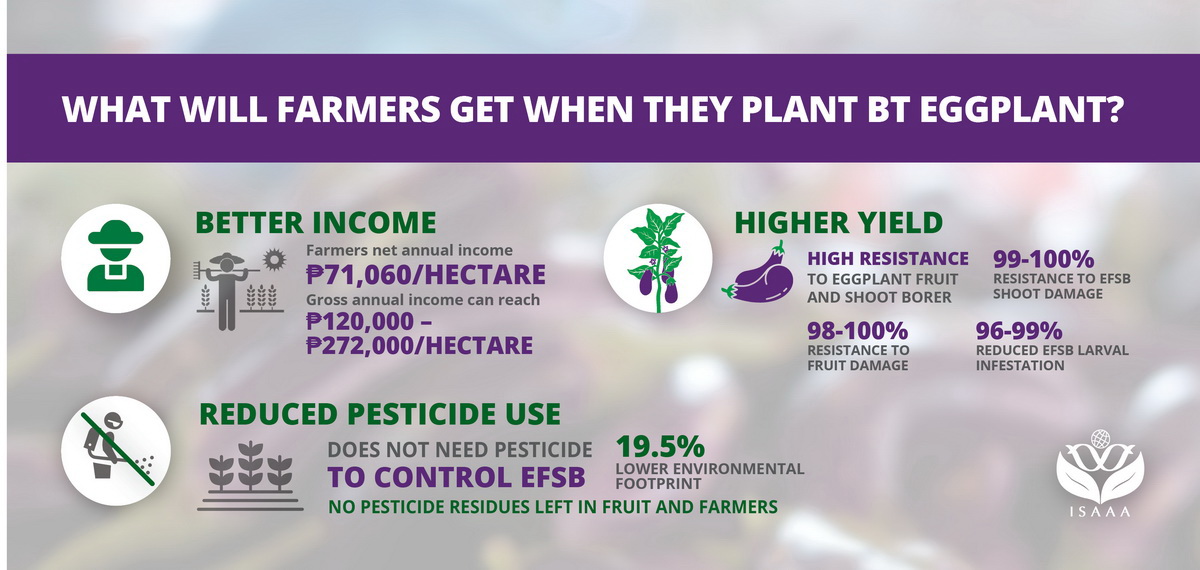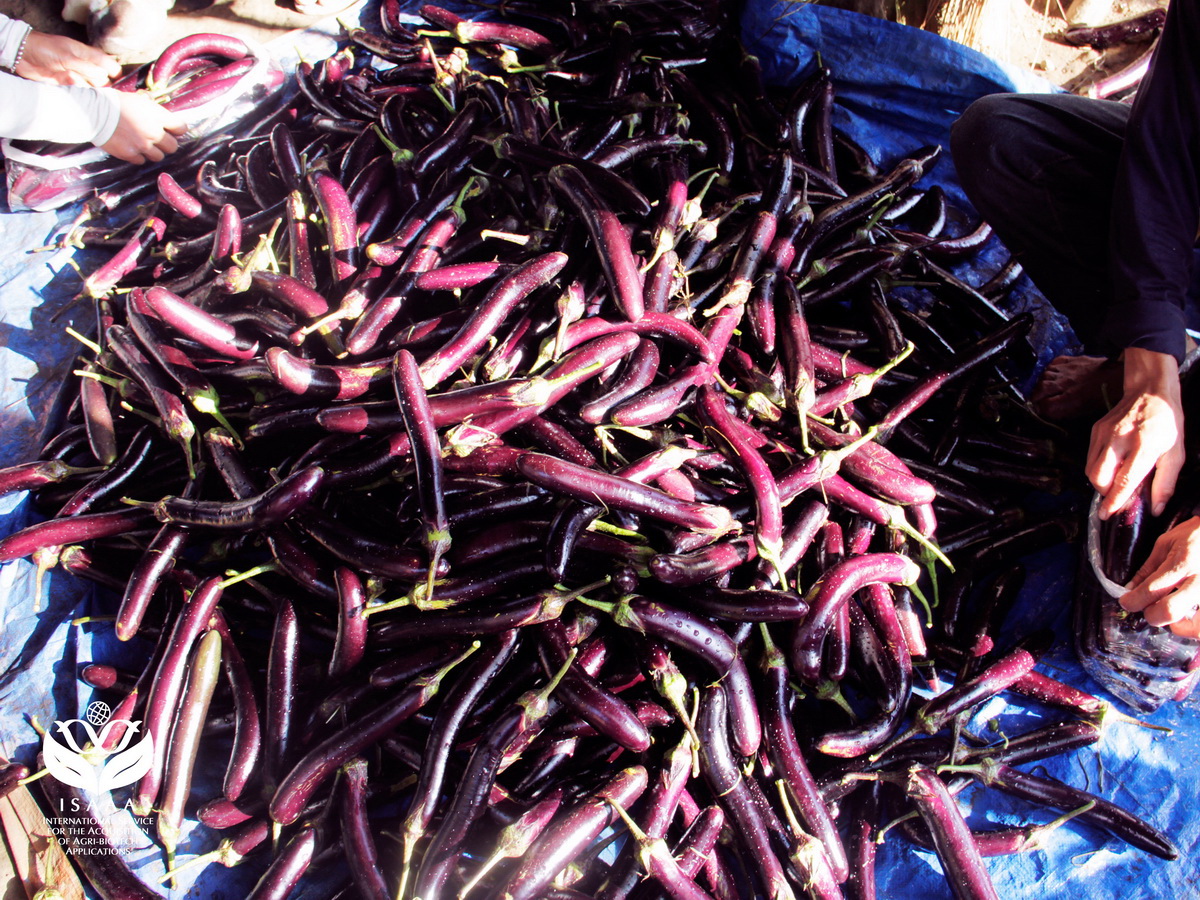What Will Farmers Get from Planting Bt Eggplant?
| |

Eggplant is an important vegetable crop globally. The fruit is used in many cuisines and preferred by people as its flesh absorbs oils and food flavors in cooking. In South Asia, eggplant, locally known as brinjal, is a staple. It comes in different shapes and colors as some are striped and round, others white and short, looking like a chicken egg, thus its most famous name. In the Philippines, eggplant is called talong and is the top vegetable crop produced in the country, where an average of 21,225 hectares is planted with eggplant each year.
Eggplant production in the Philippines has been severely affected by insect pests, diseases, and extreme environmental conditions. The most destructive insect pest of eggplant in the Philippines and other Asian countries is the eggplant fruit and shoot borer (EFSB). Farmers lose as much as 73% of their harvest annually due to EFSB and most are left with no choice but to frequently apply chemical insecticides almost daily, a practice that is dangerous not only to human health but also to the environment.
Through biotechnology, scientists at the Institute of Plant Breeding at the University of the Philippines Los Baños developed the insect resistant Bt eggplant. Bt eggplant contains a natural protein from the soil bacterium Bacillus thuringiensis which makes it resistant to EFSB. The Bt protein affects EFSB worms only and is safe for humans, farm animals, and non-target insects.
What will Filipino farmers gain from Bt eggplant? Bt eggplant will help farmers get better income. Ex-ante studies show that farmers planting Bt eggplant will earn as much as PhP71,060/hectare, with their gross incomes reaching as high as PhP120,000-PhP272,000/hectare. With conventional eggplant, farmers’ net annual income is only PhP20,000/hectare, and their gross annual income at PhP134,714/hectare.
Bt eggplant will also help increase eggplant production in the Philippines. Bt eggplant has high resistance to EFSB, and studies showed that it has 99-100% resistance to EFSB shoot damage, 98-100% resistance to fruit damage, 96-99% reduced larval infestation. Conventional eggplant, on the other hand, is very prone to EFSB damage, and farmers experience as much as 93% yield loss from damaged fruits and 42% from EFSB-damaged shoots. (These percentages are rounded off.)
Insect resistant Bt eggplant will also reduce pesticide use as the crop does not need pesticide to control EFSB. No pesticide residues are left in eggplant fruits, farmers, and the environment. With conventional eggplant, farmers spray as much as 60-80x per cropping season, leaving heavy amounts of pesticides in the plants, fruits, farmers, and the environment.
In 2014, Bangladesh became the first country in the world to approve the commercial planting of insect resistant Bt brinjal when four Bt brinjal varieties were approved for release on October 30, 2013, in time for the 2013-2014 growing season. From 2014 to 2019, a total of 91,270 smallholder farmers in Bangladesh planted Bt brinjal.
On July 21, 2021, the Philippines' Department of Agriculture-Bureau of Plant Industry (DA-BPI) approved Bt eggplant for direct use as food, feed, or for processing (FFP). To complete the biosafety regulatory process, Bt eggplant will need commercial propagation approval for environmental safety assessment before it can be made available to the public.
Bt eggplant provides complete control of eggplant fruit and shoot borer, dramatically reduces insecticide sprays, provides a six-fold increase in grower profit, and does not affect non-target organisms. Farmers are eagerly awaiting to plant Bt eggplant in their fields not only to increase their yields but also to stop the massive use of destructive chemical pesticides.
For more details about Bt eggplant, download the infographics What will farmers get from planting Bt eggplant? or visit the Bt Eggplant Resource page.
Sources:
- Biotech Crop Annual Updates Eggplant
- Pocket K No. 48: Bt Eggplant
- Questions and Answers about the Fruit and Shoot Borer Resistant Eggplant (Bt Talong), the First Filipino Biotech Product
| Newer Post | Archive | Older Post |
Science Speaks is ISAAA Inc.'s official blog. Weekly blog articles, authored by ISAAA writers, partners, and invited contributors, aim to help share, disseminate, and promote scientific knowledge and its vital role in achieving global agricultural sustainability and development. Your support to Science Speaks will help us achieve this goal. You can help us by donating as little as $10.

